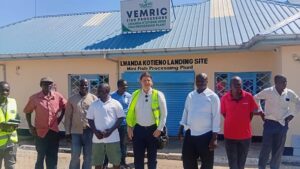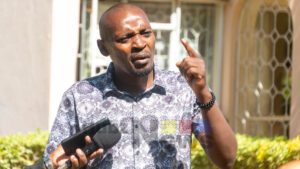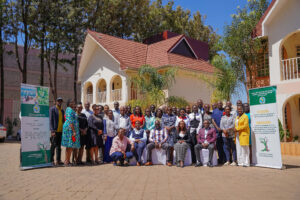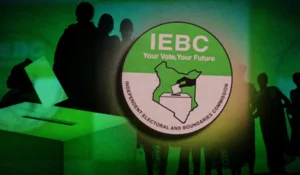African Observers Say Tanzanians Denied Right to Freely Choose Leaders
President Samia Suluhu Hassan was sworn in, having secured an overwhelming 98 percent of the vote a result the opposition dismissed as fraudulent.

Hundreds of people are reported to have died in protests after the east African nation's presidential and parliamentary polls on October 29, with key candidates either jailed or barred from participating. Photo/Courtesy.
By Ruth Sang
African election observers have raised serious concerns about the credibility of Tanzania’s recent general elections, stating that citizens were unable to freely express their democratic will due to widespread intimidation, censorship, and suppression of the opposition.
In a preliminary report released on Monday, the Southern African Development Community Electoral Observation Mission, SEOM, said the electoral environment was blighted by fear and political tension. It came just hours after President Samia Suluhu Hassan was sworn in, having secured an overwhelming 98 percent of the vote—a result the opposition dismissed as fraudulent.
“It is our tentative conclusion that, in most parts of the country, voters could not express their democratic will,” said Richard Msowoya, head of mission for SEOM. He added that the mission had identified multiple irregularities that undermined the transparency and fairness of the October 29 elections.
The mission consisted of 66 observers from 10 member states, including Eswatini, Lesotho, Botswana, Namibia, Malawi, Mozambique, Seychelles, South Africa, Zambia, and Zimbabwe, who were deployed across 27 out of Tanzania’s 31 regions. Their findings paint a troubling picture of intimidation, restricted freedoms, and electoral malpractice.
According to SEOM, many stakeholders reported that the calm on election day masked “covert acts of intimidation” against voters and opposition figures. The observers noted an “increasingly tense political atmosphere” and cited numerous reports of abductions linked to political activity.
The Tanganyika Law Society had earlier confirmed at least 83 abductions since President Hassan took office in 2021, with another 20 cases reported in the weeks leading up to the polls.
The observers pointed out the heavy presence of security at the polling stations, especially with police officers sometimes outnumbering the voters. While the electoral commission said the voter turnout was 87 percent, SEOM described participation as “very low.”
In some stations, observers reportedly witnessed “multiple neatly stacked ballots inside boxes during voting,” raising suspicions of ballot stuffing. Other reports indicated instances where individuals “appeared to cast more than one vote,” suggesting manipulation of the voting process.
Violence was reported in the regions of Mbeya, Dodoma, Arusha, and Dar es Salaam, with clashes between protesters and security forces turning deadly. Leaders of opposition groups say as many as 800 people may have been killed in post-election violence.
SEOM further expressed alarm over “increasing covert and overt restrictions on freedom of expression,” pointing to the widespread censorship imposed upon both online platforms and media outlets. The report concludes that the overall electoral environment in Tanzania failed to uphold democratic principles, leaving the legitimacy of the results in serious doubt.





